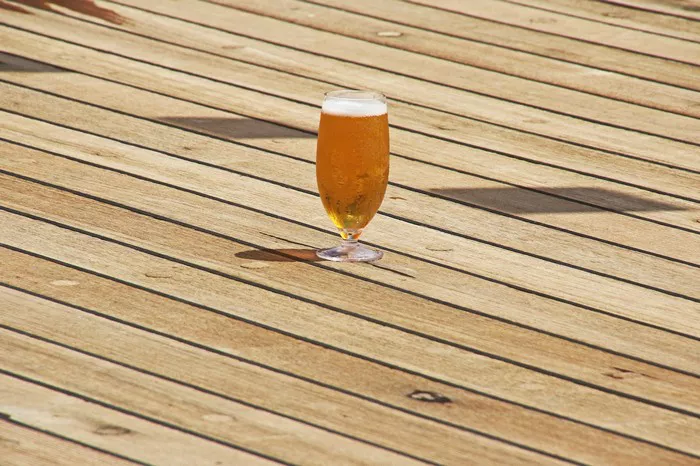In the realm of social gatherings and relaxation, beer holds a prominent place as a favored beverage for many. However, its consumption has been associated with weight gain and an increase in body fat. The question remains: Why does drinking beer make you fat? Exploring this query reveals a combination of factors, from its caloric content to its impact on metabolism and dietary habits, that contribute to the potential for weight gain. Understanding these elements is crucial in comprehending the intricate relationship between beer consumption and its influence on body weight.
Caloric Content and Excess Calories
At the core of the query “Why does drinking beer make you fat?” lies the significant caloric content found in beer. Beer, particularly the varieties with higher alcohol content like craft beers or ales, can be calorie-dense. It’s not just the alcohol that contributes to its caloric load but also the carbohydrates present in the beverage. The fermentation process in brewing converts starches into sugars, contributing to the beer’s calorie count. As a result, a regular intake of beer adds surplus calories to the diet, potentially leading to weight gain over time.
Alcohol, as a macronutrient, contains more calories per gram than protein or carbohydrates. With around seven calories per gram, it becomes a substantial contributor to daily energy intake. As a consequence, excessive beer consumption can easily lead to an overconsumption of calories, which the body tends to store as fat when not utilized.
Impact on Metabolism
The question “Why does drinking beer make you fat?” extends beyond its caloric content to the impact of alcohol on the body’s metabolism. When consumed, alcohol becomes a priority for the body to metabolize and convert into energy. This process takes precedence over metabolizing other macronutrients like carbohydrates or fats, potentially hindering the body’s ability to burn fat efficiently.
Moreover, excessive alcohol consumption can disrupt the functioning of the liver, an organ vital for fat metabolism. The liver’s primary role is to metabolize and break down fats. However, when processing alcohol, the liver prioritizes this task, leading to an accumulation of fatty acids in the bloodstream. These excess fatty acids are then stored in adipose tissue, contributing to weight gain and the expansion of fat reserves in the body.
Beer and Appetite
Another aspect contributing to the link between beer consumption and weight gain is its influence on appetite and dietary choices. Research indicates that alcohol, including beer, can stimulate appetite and diminish inhibitions, leading to increased food consumption. The combination of lowered inhibitions and altered satiety signals might prompt individuals to indulge in larger portions or make less healthy food choices while consuming beer.
Furthermore, the snacks and food typically paired with beer—such as fried foods, salty snacks, or high-calorie appetizers—can significantly contribute to an increased calorie intake. This pattern of combining beer with high-calorie, often unhealthy, foods can further exacerbate weight gain.
Beer Belly Myth or Reality?
The infamous “beer belly” has become synonymous with excessive beer consumption and weight gain. But is this just a myth, or is there truth to the concept? Understanding the distribution of fat in the body sheds light on this phenomenon.
Excessive beer consumption can lead to an increase in visceral fat, the type of fat stored around the abdominal organs. This visceral fat accumulation is associated with various health risks, including cardiovascular issues and metabolic disorders. Beer’s impact on fat distribution tends to favor abdominal fat storage, potentially contributing to the development of a protruding abdomen or the colloquially termed “beer belly.”
Gender Variations and Genetic Predispositions
Factors such as gender and genetic predispositions also play a role in how beer consumption affects weight gain. Men and women metabolize alcohol differently due to variations in body composition and enzymes responsible for alcohol metabolism. Generally, men tend to have a higher percentage of muscle mass and a higher metabolic rate than women, allowing them to metabolize alcohol more efficiently. Consequently, women might experience a more pronounced impact on weight gain from beer consumption compared to men.
Additionally, genetic factors can influence an individual’s susceptibility to gaining weight from alcohol consumption. Some individuals possess genetic variations that affect alcohol metabolism or predispose them to storing excess calories as fat more readily.
The Importance of Moderation and Healthier Choices
While the association between beer consumption and weight gain is evident, moderation and healthier choices can mitigate its impact on body weight. Opting for lighter beer varieties or reducing overall alcohol intake can significantly lower the calorie load from beer consumption. Additionally, being mindful of portion sizes and making healthier food choices while enjoying beer can help control calorie intake and reduce the risk of weight gain.
Incorporating regular physical activity into one’s routine can also counterbalance the effects of beer consumption on weight. Exercise not only burns calories but also boosts metabolism and helps maintain a healthier body composition.
Conclusion
The query “Why does drinking beer make you fat?” encompasses various elements that collectively contribute to weight gain. From its calorie-dense nature to its impact on metabolism, appetite stimulation, and fat distribution, beer consumption can significantly influence an individual’s body weight. Understanding these factors empowers individuals to make informed choices, emphasizing moderation, healthier options, and a balanced lifestyle to mitigate the potential adverse effects of beer consumption on weight and overall health.


